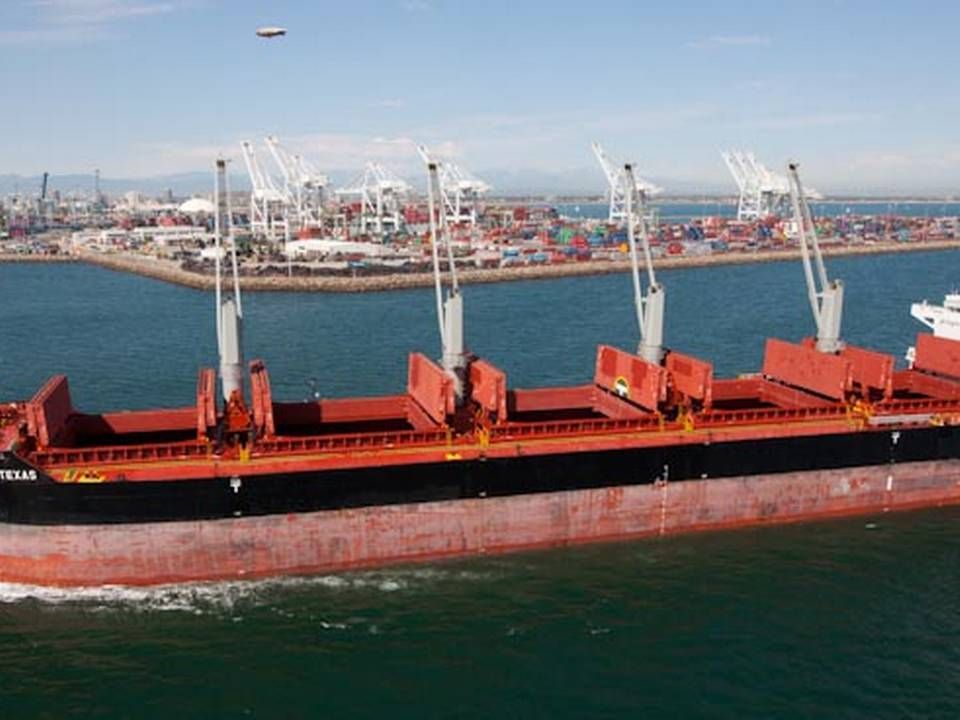Western Bulk: Only the industry can change dreadful bulk market

Confidence in the dry bulk market was naturally enough at a low point when Norwegian carrier Western Bulk entered the first quarter. As such, the bulk carrier began the new year with more cargo than ships, and this proved to be a smart move, CEO Jens Ismar tells ShippingWatch after the carrier published its first quarter interim report today, Wednesday.
"In the continuously declining market this is a good position to be in, and that's why Western Chartering achieved a significantly better result in this quarter than in the fourth quarter last year. This is the key ability that is our main strength and which has enabled us to improve our performance in the past quarter," he says about one of the company's divisions, WB Chartering, the key business, where the carrier can position itself in relation to market developments.
Norden Chairman: Dry bulk must adjust to new reality

Photo: Western Bulk
In the first quarter of the year Western Bulk noted a result after taxes of USD 5.5 million, which is a significant improvement from the fourth quarter deficit of USD 45.6 million, not to mention the entire deficit for last year of 57 million. Derivatives related to bunker and currency hedging in particular had a positive impact on the result, though Jens Ismar explains that this does not say much about the carrier's underlying performance.
"The key factor is that the charter division improved significantly. We improved the result by USD 15 million compared to the fourth quarter," he says.
The industry has to do the work
Even though Western Bulk managed to deliver an improved result for the chartering division, there is not much optimism to find at the carrier's offices in Oslo in terms of the market going forward. Jens Ismar describes the first quarter as well as the beginning of the second quarter as miserable. The market has continued to decline this year and has been doing so since the middle of last year due to a dive in global demand.
"The first quarter was a bad quarter, and this has continued into this quarter. Perhaps slightly less volatile, but we're not seeing any real market improvements anytime soon. During the financial crisis in 2008 the market was saved by a strong demand, especially from China. That's not going to happen now, and the gap between supply and demand will need to be closed by reducing the supply through scrapped vessels, cancellations or postponing newbuildings. So the industry will have to do the work needed to rebalance the market by adjusting the supply of tonnage, because there won't be any help to get from demand this time around," he says.
Jens Ismar points out that carriers have begun scrapping vessels, and that 10 million dwt were scrapped in the first quarter, with five million dwt scrapped in April. But this number is still less than the number of newbuildings being delivered, he says.
"We've started to rebalance the market, but the process needs to continue."
According to the interim report on Wednesday, the carrier's gross profit came to USD 272 million, compared to USD 354.7 million in the fourth quarter 2014.
Western Bulk lands a profit in first quarter
Western Bulk: Even strong companies can fail
Related articles
Western Bulk lands a profit in first quarter
For subscribers
Western Bulk suffered USD 57 million deficit in 2014
For subscribers




















